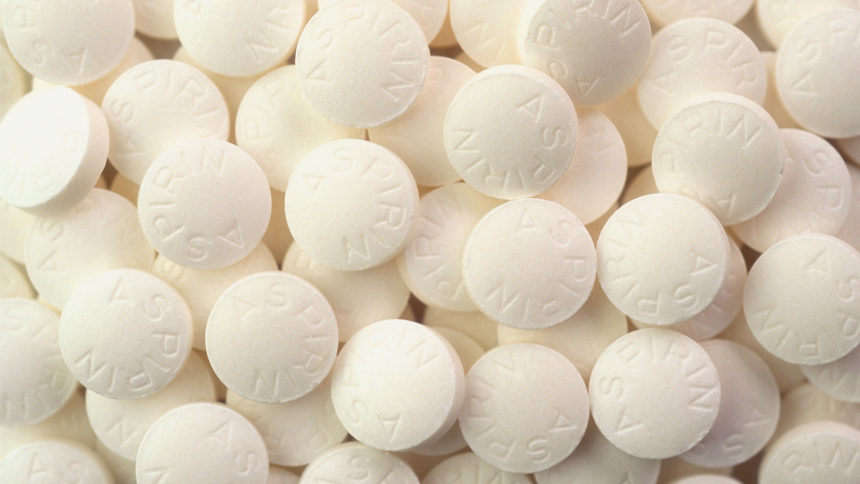
New research found that taking daily low-dose aspirin may not help otherwise healthy older adults lower their risk of ischemic stroke — and it actually increases their chances of brain bleeding from stroke and some head traumas. The news is important for older adults who have a higher risk for falls.
Researchers re-examined a randomized trial of 19,114 older adults randomly taking and not taking low-dose daily aspirin. They found people taking the aspirin had a 38% increase in intracranial bleeding after hemorrhagic stroke and other causes of intracerebral hemorrhage. The aspirin didn’t significantly lower the incidence of ischemic strokes in the people, either. This comes as low-dose aspirin has been widely thought to prevent stroke.
Translation: Taking a low-dose aspirin may not do much to prevent stroke in some people, and it can increase bleeding after stroke or brain bleeding. In fact, people should be cautious about taking it — especially if they haven’t had a stroke or heart attack in the past, and may be more at risk for falls, the researchers said.
The research was published in JAMA.
Researchers followed people who took either a 100-milligram aspirin or a placebo for a median of 4.7 years. The median age of the people was 74. The participants were from the US and Australia, and they didn’t have any cardiovascular disease at the start of the study.
Last year, the US Preventive Services Task Force said low-dose aspirin shouldn’t be used to prevent a heart attack or stroke in healthy older adults.
“We can be very emphatic that healthy people who are not on aspirin and do not have multiple risk factors should not be starting it now,” Randall Stafford, a medical professor and epidemiologist at Stanford University, told another outlet. He wasn’t involved in the study, but said it’s not as clear if people should take it if they aren’t in the category of healthy older adults.
“The longer you’ve been on aspirin and the more risk factors you have for heart attacks and strokes, the murkier it gets,” Stafford said.
Experts generally say that people who have already had a stroke or heart attack should take a low-dose aspirin every day. The news comes after a study last month from the same dataset found that taking low-dose aspirin was linked to increases in anemia and lower ferritin levels.





